ASTANA – Kazakhstan celebrates Gratitude Day on March 1, emphasizing the importance of fostering unity among its diverse population. This day serves as an occasion for ethnic groups to express gratitude to one another and the Kazakh people for their hospitality, support, mercy, and compassion during the years when numerous populations were forcibly relocated to the country.
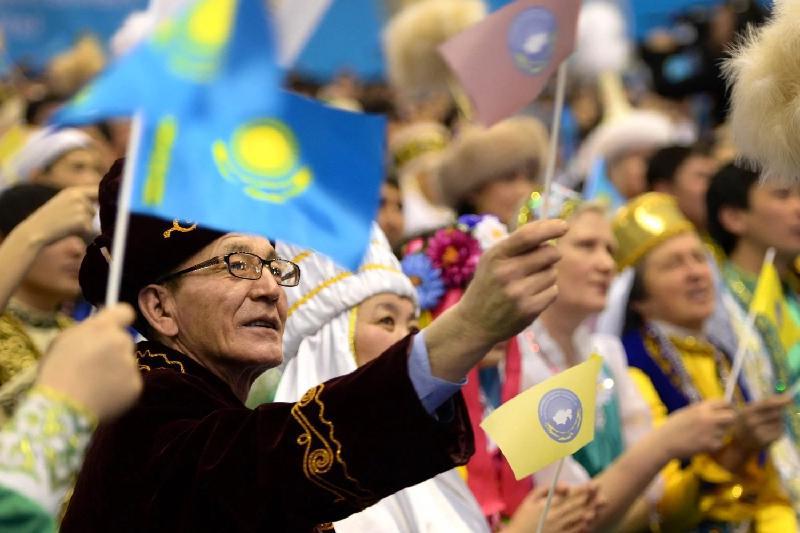
Photo credit: top-news.kz
Established in 2016, this holiday is dedicated to the formation of the Assembly of the People of Kazakhstan (APK).
In the 20th century, Kazakhstan underwent a complex process of forming a multi-ethnic population. From the 1930s to 1952, the Soviet government conducted forced mass deportations of various ethnic groups, affecting at least six million people. Among those deported were Koreans, Germans, Poles, Finns, Karachais, Kalmyks, Chechens, Ingush, Balkars, Crimean Tatars, and Meskhetian Turks. Upon arrival, these groups faced dire circumstances, but they found refuge and assistance from local residents, who welcomed them with hospitality and shared cultural customs.
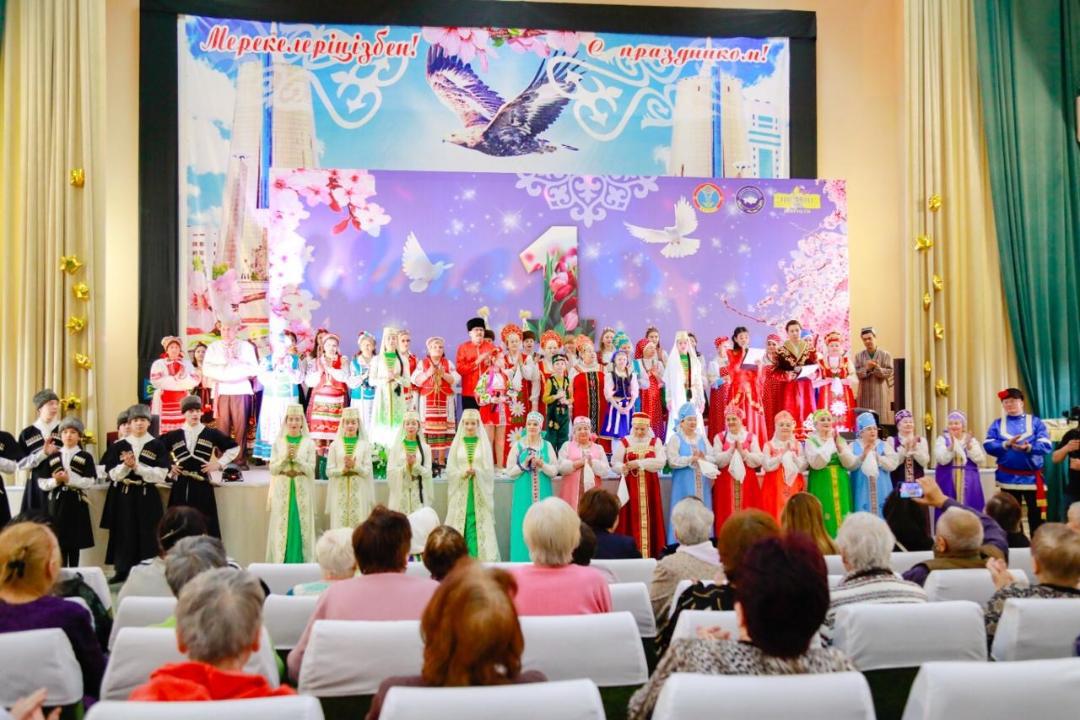
On Feb. 28, cultural centers under the Assembly of the People of Kazakhstan visited a nursing home, where showcased their traditional dishes and organized a rich concert program. Photo credit: Akimat’s press service
The assembly, established in 1995, includes representatives of these resettled peoples. It unites over 800 ethnocultural associations, bringing together various national and cultural centers that existed independently before its formation.
According to Yusup Keligov, the co-chairman of the Vainakh Association of the Chechens and Ingush in Kazakhstan, nobody is segregated based on nationality, thanks in part to the efforts of the APK.
“In this turbulent era, Kazakhstan stands out as a territory where a unique blend of cultures and traditions has formed, thanks to historical factors. Despite global conflicts and information wars, Kazakhstan remains a bastion of cultural diversity, having weathered countless trials and challenges. This has fostered a strong sense of gratitude among its people,” he said.
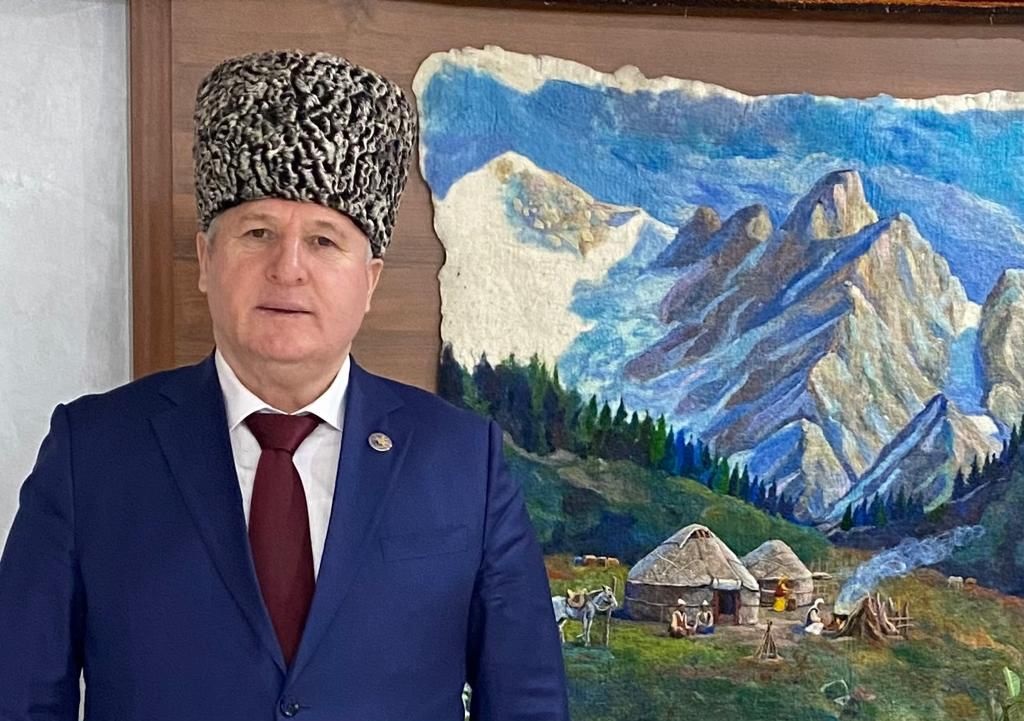
Co-chairman of the Vainakh Association of the Chechens and Ingush in Kazakhstan Yusup Keligov. Photo credit: assembly.kz
Keligov emphasized that mutual respect serves as the cornerstone of interaction among the diverse ethnic groups intertwined throughout Kazakhstan’s history.
“Gratitude knows no bounds among those who have returned to their roots or made Kazakhstan their home. The kindness extended by Kazakhs during times of need is remembered and cherished through generations,” said Keligov.
He highlighted Kazakhstan’s model of social harmony and national unity, which allows each ethnic group to preserve its unique identity, language, and customs. This cultural exchange enriches the spiritual landscape of Kazakh society, emphasizing the value of individuals based on their actions rather than their ethnicity.
“Kazakhstan’s multiculturalism is an asset, fostering unity rather than discord,” said Keligov.
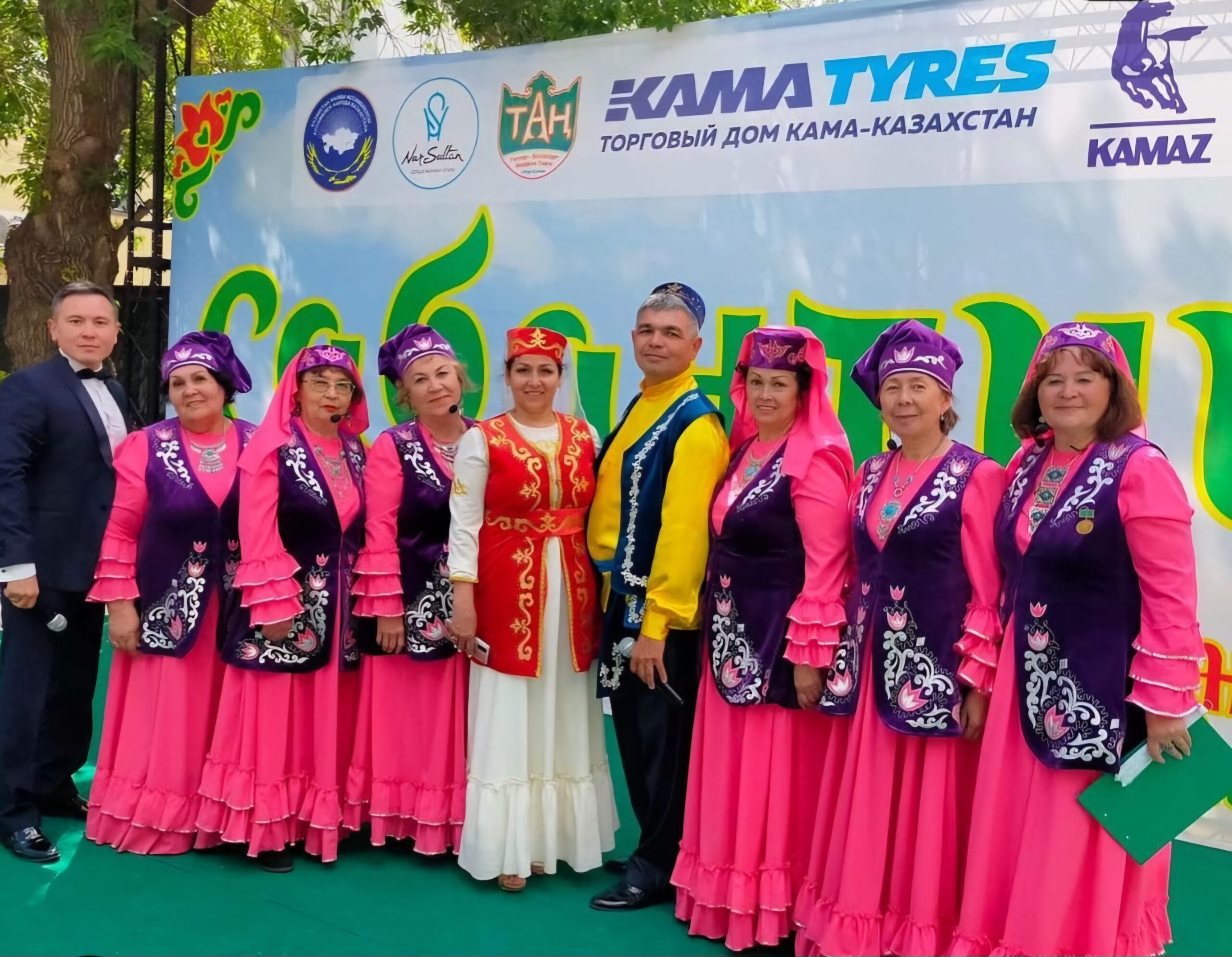
Sabantuy, a spring sowing festival, holds special significance for the entire Tatar-Bashkir community. Photo credit: Sadykov’s personal archieve
The Association of Chechens and Ingush of Kazakhstan traditionally initiates charitable activities on Feb. 23, marking the anniversary of the forced deportation of Caucasus peoples, including the Vainakhs.
“As Gratitude Day approaches, our association with regional ethnocultural leaders, entrepreneurs, youth, and volunteers, assists over 1,000 families nationwide. This ongoing support targets low-income households,” said Keligov.
“We remember those days, which bolstered the unity of Kazakhstan’s people through interethnic integration. Our efforts focus on cultivating the youth’s interest in history, fostering a desire to uphold and enrich our finest traditions rooted in the spiritual and humanitarian values of the Great Steppe. Every endeavor aims to fortify peace, harmony, and interethnic unity in our shared homeland,” he added.
Sergey Sadykov, the deputy chairman of the Tan, Tatar-Bashkir cultural center under the APK, highlighted the deep significance and spirituality of Gratitude Day. He described it as a gesture of respect for shared history and appreciation for the sacred Kazakh land, which has become a home for all Kazakhs.
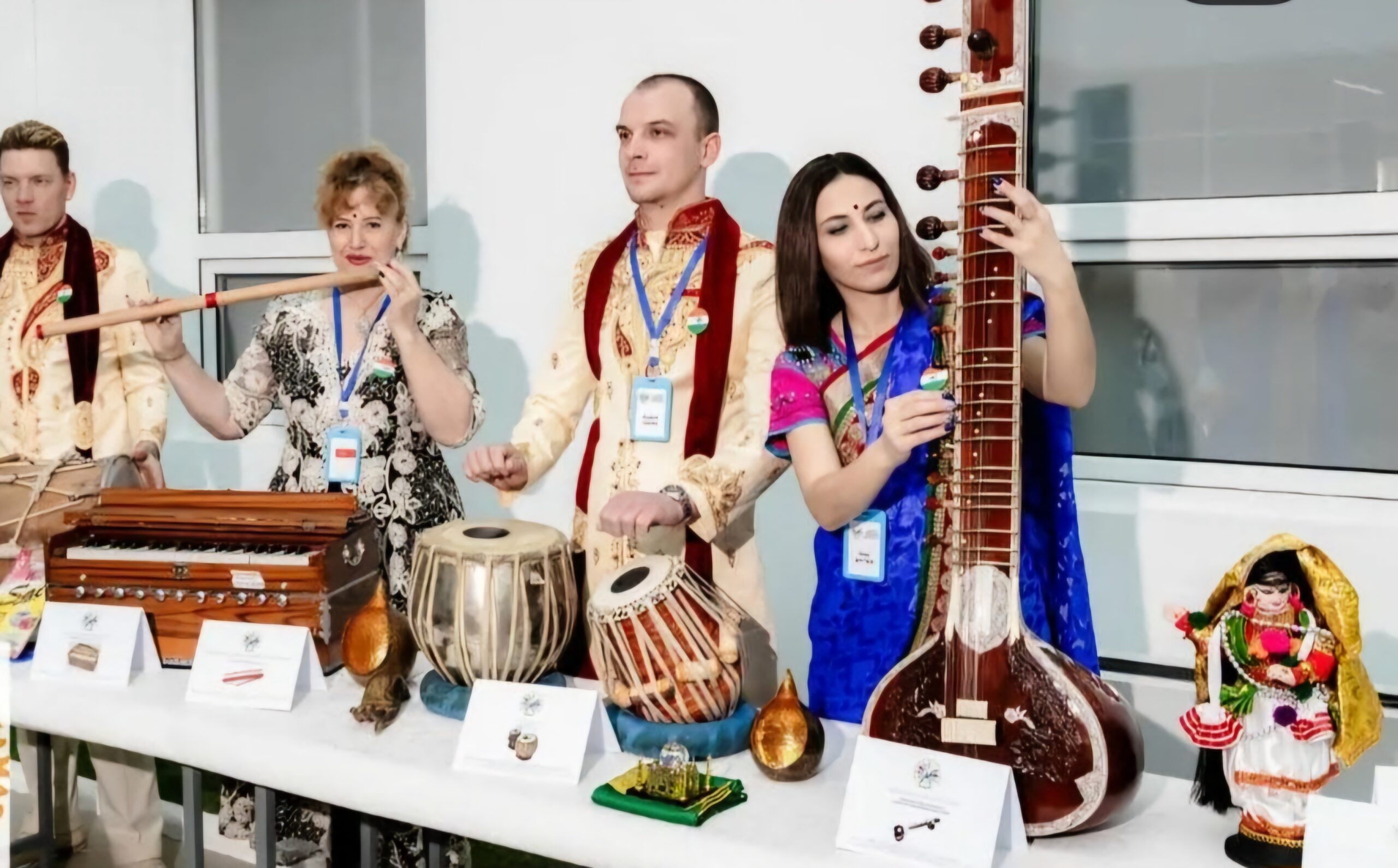
Salem-Namaste, the Indian ethnocultural association in the Mangystau Region showcased Indian traditional musical instruments. Photo credit: Salem-Namaste’s Instagram page
During the years of migration, the Kazakh people generously shared their resources with those who arrived, irrespective of nationality or religion. Those who sought refuge on Kazakh land are profoundly grateful to the Kazakh people for providing warmth and shelter. Today, their descendants consider Kazakhstan their homeland,” he said.
Sadykov highlighted the pride of Tatars living in Kazakhstan and the favorable opportunities created by the country. He acknowledged the state’s support in establishing national centers, schools, and ensembles, contributing to preserving customs, rituals, and language.
In Kazakhstan, conditions have been established for diverse ethnic groups to safeguard their languages and traditions. Friendship houses across the country host study groups for languages such as Uzbek, Tajik, Korean, Tatar, Chechen, and Ingush and much more.
“I have encountered individuals of different nationalities studying the Tatar language, and this mutual interest in a language beyond our native one allows us to deepen our understanding and bring us closer together spiritually,” he said.
Sadykov mentioned the Sabantuy, a spring sowing festival, that holds special significance for the entire Tatar-Bashkir community, attracting over a thousand citizens, including guests from Kazan and other regions, participating in various events and concerts.
“On Feb. 28, we visited a nursing home, where all centers under the APK showcased their traditional dishes and organized a rich concert program. We make a concerted effort to pay tribute to our elders each year,” he added.
Toomas Tirs, Ambassador of Estonia, emphasized that Kazakhstan became a home for Estonian people who began migrating here in the 20th century and establishing villages.
“Pokrovka village in the Akmola Region was the first Estonian settlement, and last year it celebrated its 130th anniversary. The village still holds memories of its early settlement, and such connections are crucial for us. During my visit there, I spoke with local elders who recalled that time, emphasizing the good and friendly relations among nations,” he said.
Tirs expressed gratitude to the Kazakh people for their hospitality and support during the massive deportation to the country.
In our language, we have the word ‘kodumaa,’ which means a motherland, so Estonians who live in Kazakhstan can proudly say that this country becomes their kodumaa,” he added.
In the Mangystau Region, Salaam-Namaste, the Indian ethnocultural association under the APK, commemorates Gratitude Day through charity events and expressions of appreciation to utility workers.
Nadezhda Vadodariya, chairwoman of the association, highlights the harmonious coexistence of ethnic groups in Kazakhstan and expresses gratitude to the Kazakhs for fostering an environment of peace, friendship, and harmony.
In anticipation of Gratitude Day, Astana will host various festive and official events, including exhibitions, concerts, and theatrical performances. The celebration will also include acts of kindness, such as distributing hot tea and traditional baursaks (national bread), and providing meals of gratitude to essential workers.
A significant moment will occur with a flower-laying ceremony at the monument Qazaq Eline Myng Algys, where members of the APK will pay their respects.
